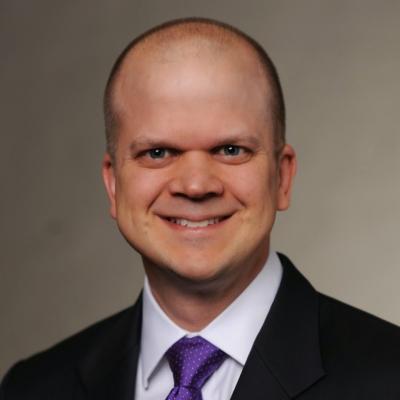Last week I testified before the House Labor, Health and Human Services (Labor-HHS) Appropriations Subcommittee about Alzheimer's research funding. I submitted written testimony prepared by our federal affairs team that made the case for a $414 million increase in the federal investment in Alzheimer's research for Fiscal Year 2018 (FY18) based upon the Alzheimer's Professional Judgment Budget issued by the National Institutes of Health (NIH).
The House Labor-HHS Subcommittee has jurisdiction over a number of programs impacting the Alzheimer's community, including funding for the National Institutes of Health (NIH). This subcommittee, along with its Senate counterpart, has demonstrated a keen commitment to Alzheimer's research in recent years, leading to the historic $350 million funding increase in FY16. To recognize the work of the House Appropriations Committee, AIM will honor House Labor-HHS Subcommittee Chairman Tom Cole (R-OK-04) and House Appropriations Committee Ranking Member Nita Lowey (D-NY-17) with the Humanitarian Award at the 2017 Advocacy Forum.
In addition to the written testimony, I made the following remarks during the hearing:
Good morning Chairman Cole, Ranking Member DeLauro and members of the Subcommittee. On behalf of the more than 5 million Americans living with Alzheimer's disease and their 15 million caregivers, thank you for the opportunity to testify before you today.
I'd like to begin by also thanking you for the extremely important leadership this subcommittee demonstrated in addressing Alzheimer's during the 114th Congress.
You were integral to delivering a much needed, historic increase in Alzheimer's funding in Fiscal Year 2016.
And for Fiscal Year 2017 you completed the work to do so again. On that note, we ask you to continue to pursue this very important FY17 Alzheimer's research funding over these coming two months.
The Alzheimer's community is very grateful for your work. You have given new hope to Americans that the realities that define this disease today can and will change in the years ahead.
As you are well aware, however, today the realities that define this disease are grim.
Alzheimer's is a terminal disease with no survivors. Recent failures of high profile Alzheimer's trials underscore that Alzheimer's retains the unacceptable distinction of being the only one of the top ten causes of death in America without a way to cure, prevent or even slow its progression.
It should be no surprise then that Alzheimer's has become a top priority for Americans -- in fact, those middle aged and older identify Alzheimer's by a significant margin as the disease they fear most.
Alzheimer's is also very costly. Another regrettable distinction held by Alzheimer's is that, according to an NIH-funded study conducted by RAND economists and published in the New England Journal of Medicine, Alzheimer's has grown to become the most expensive disease in America. More than two thirds of this cost is paid by Medicare and Medicaid.
As if all this were not enough to justify an urgent response, America's Alzheimer's crisis is set to grow much worse in the years ahead.
Because Alzheimer's is predominantly a disease associated with aging, and America is predominantly an aging society, these numbers will skyrocket between now and 2050.
By 2050, those with Alzheimer's will as much as triple, and the associated costs will quadruple to $1.1 trillion per year - unless, that is, we can change this trajectory through the development of effective treatments and means of prevention.
These facts underscore that America urgently needs this subcommittee's continued, decisive leadership.
But all these facts make only half of a case. We understand that you not only must ensure that you direct limited resources to where needs are great, but also to where opportunities are great. What's more, you need to decide not just whether funds are warranted, but how much funding is warranted. These are important and difficult questions to answer.
Fortunately, in the case of Alzheimer's specifically, Congress has put in place a policy framework that has provided you with exactly this information for Fiscal Year 2018, and we urge you to rely on it.
In 2011 the bipartisan National Alzheimer's Project Act became law requiring the creation of a comprehensive National Alzheimer's Plan.
The U.S. Department of Health and Human Services released this plan in 2012 containing the lead goal to prevent and effectively treat Alzheimer's by 2025.
Then, in 2014, Congress enacted the Alzheimer's Accountability Act.
This act requires the National Institutes of Health to prepare for Congress and the President an annual professional judgement budget - sometimes called a bypass budget. In this bypass budget for Fiscal Year 2018, NIH Director Francis Collins has stated that the NIH will require an additional $414 million in funding to remain on track to achieve the Plan's 2025 goal.
The NIH has done excellent work, carefully detailing a plan-based budget to decisively address this disease. We ask you to fund this plan for the coming fiscal year.
When coupled with the facts about the burden of this disease that I outlined earlier, we believe that together those arresting facts and this thorough NIH budget do make for a complete and compelling case for this subcommittee to stay the course; a course that has every potential to change the future of Alzheimer's disease.
In sum, on behalf of the Alzheimer's Association and the Alzheimer's Impact Movement, we commend Congress for creating a process that has equipped this subcommittee in an unusually thorough way to answer the question of what to provide for Alzheimer's research in FY2018. Following this process, NIH scientists have indicated to you that they require an increase of $414 million dollars in Alzheimer's research funding for the coming year. The Alzheimer's Association and the Alzheimer's Impact Movement are pleased to adopt the NIH's determination as our request of this subcommittee.
Thank you.
Robert Egge is the Chief Public Policy Officer of the Alzheimer's Association and the Executive Director of the Alzheimer's Impact Movement.
